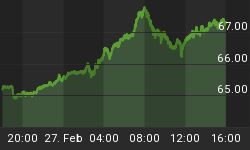It is important that when you read articles on Job Reports you understand what Structural Unemployment is, and what it means to economic growth.
An April 9 article by Joe Duarte discusses the April 6 U.S. Jobs Report in the context of Structural Unemployment. In his article, Duarte concludes:
- the foundation of the U.S. economy is no longer what it once was;
- Structural Unemployment issues were at the center of the disappointing April 6 U.S. jobs report;
- things won't improve until "the structural problems, education, job repatriation, innovation, and responsible long term policies in energy, manufacturing, tax structure and fiscal responsibility are addressed in a sensible, flexible, and responsible fashion";
- This leaves the U.S. population in an increasingly volatile and dangerous environment both as investors and as citizens.
Joe Duarte analyzes intelligence and global events and their effects on investors and taxpayers. He is frequently quoted in the major media.
I have believed for at least the past two years that the U.S. has a Structural Unemployment problem, and have frequently warned about that in these Daily Commentaries. Simplistically, structural Unemployment exists where:
- the job skills of available workers do not match the job requirements of employers; or,
- Available workers with jobs skills required by employers who want to hire are not physically located in close enough proximity to the employer's geographic location.
A third type of delayed unemployment is akin to Structural Unemployment. That unemployment occurs where, for example, a mid-level manager making $70,000 per year loses his/her job, is unable to find another job either because of their age, their skill level, location, etc. and refuses to accept the reality that they have to take a job they consider 'beneath their skills' or demeaning in some way. That unemployed person then postpones their job search until reality and desperation kick in. By then they are older, in an environment that makes it ever harder to find a job.
Structural Unemployment is particularly difficult to deal with because of the elapsed time necessary to train workers in new skills, or to relocate workers at substantive cost. 'Sort of' Structural Unemployment exacerbates the problem.
I am unaware of any study that quantifies the extent of U.S. Structural Unemployment. It is a big deal and likely getting to be a Bigger Deal. I suggest you read Durate's article and this commentary closely, and carefully reflect on what Structural Unemployment means to U.S. economic recovery and future U.S. Jobs Reports.
Read: The Jobs Report: What Structural Really Means.
Source: The Financial Sense Blog, Joe Duarte (the Joe-Durate Blog), April 9, 2012.
Reading time: 6 minutes.















